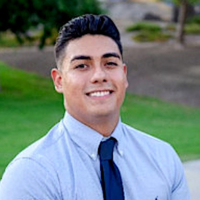As Election Nears, LPPI Hosts Roundtable With Philanthropic Leaders About Latino Agenda
Working with Hispanics in Philanthropy, the UCLA Latino Policy and Politics Initiative, or LPPI, hosted a virtual conversation Oct. 1 with 29 philanthropic leaders about shaping a political agenda for Black and brown people. Titled “Juntos Ganamos,” or “Together We Win,” the discussion centered on “Shaping a 21st Century Latino Agenda,” a blueprint recently created by UCLA LPPI for policy reforms on issues that include climate change, health, economic opportunity and voting rights. The COVID-19 pandemic has deepened existing inequities, and the agenda seeks to address systemic racial injustices and chart a path forward. The roundtable was the first in a series in which Latinx foundation presidents, CEOs and trustees will examine the role of philanthropy amid a global pandemic, ongoing economic inequality and a renewed focus on violence involving police. “There is importance in building unity and coalition among all communities of color, while recognizing the efforts, lives and leadership of our Black peers,” said María Morales MPP ’20, who helped put together the roundtable. Speakers included Sonja Diaz, founding director of the initiative, who said Latino workers often experience “invisibility” in the workplace. “Essential should not be interchangeable with disposable,” Diaz said. Roundtable attendees also learned about research that demonstrates that Black, brown, Asian and Indigenous people combine to make up America’s new majority, potentially influencing policy for years to come. Mobilizing such voters is essential for both parties in the November elections, presenters noted, and philanthropy can play a key role in helping to build solidarity among ethnic communities. — Eliza Moreno

